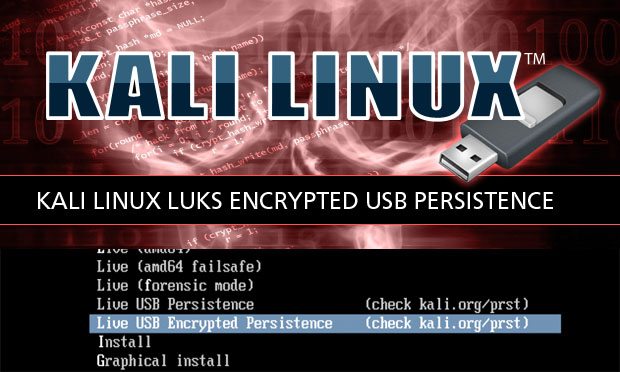Open Source operating system Kali Linux which is designed for digital forensics and penetration testing has been updated to Kali Linux 1.0.7 with a new feature, for which everyone is waiting for.
Kali Linux is a Debian-derived Linux distribution designed for digital forensics and penetration testing. It is maintained and funded by Offensive Security Ltd. It was developed by Mati Aharoni and Devon Kearns of Offensive Security through the rewrite of BackTrack, their previous forensics Linux distribution.
What’s NEW?
KALI LINUX updated with a new feature ‘Live USB persistence encryption’, by which you can create a Bootable Kali Linux with persistent encrypted partition on USB drive, that gives you an option to securely save your changes on the USB drive even after the reboots.
In simple words, from now you can live boot to a “clean” Kali image or alternatively, overlay it with the contents of a persistent encrypted partition, allowing you to securely save your changes on the USB drive between reboots. If you add our LUKS nuke feature into this mix together with a 32GB USB 3.0 thumb drive, you’ve got yourself a fast, versatile, and secure “Penetration Testing Travel Kit”.
Now, in the latest version of Kali 1.0.7 you will find two persistent boot options:

Upgrade NOW:
If you have already installed KALI on your machine, so you can upgrade to the latest version using the following commands:
apt-get update
apt-get dist-upgrade
# If you’ve just updated your kernel, then:
reboot
Read More about this new version: Kali Linux Live USB with encrypted persistence.
SOURCE: Kali | Wikipedia


